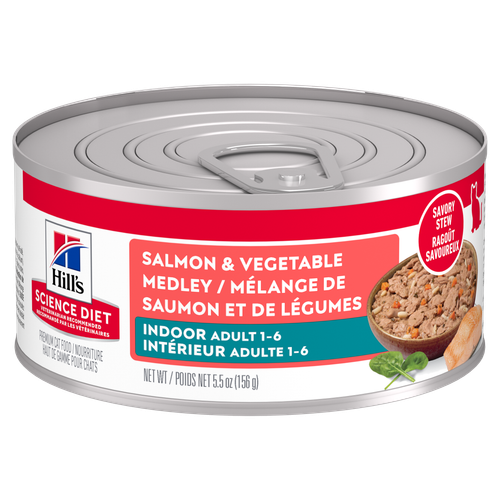
-
Find the right food for your petTake this quiz to see which food may be the best for your furry friend.Find the right food for your petTake this quiz to see which food may be the best for your furry friend.Featured products
 Adult 7+ Chicken Meal, Barley & Rice Recipe Dog Food
Adult 7+ Chicken Meal, Barley & Rice Recipe Dog FoodSupports energy level & beautiful coat. Helps keep immune system, heart & kidneys healthy
Shop Now Adult Large Breed Chicken & Barley Recipe Dog Food
Adult Large Breed Chicken & Barley Recipe Dog FoodSupports healthy joints, immune system, digestion, lean muscle & beautiful coat
Shop Now Adult Chicken & Barley Recipe Dog Food
Adult Chicken & Barley Recipe Dog FoodSupports healthy immune system, digestion, lean muscle & beautiful coat
Shop NowFeatured products Adult Urinary Hairball Control Savory Chicken Entrée cat food
Adult Urinary Hairball Control Savory Chicken Entrée cat foodSupports the health of the whole urinary system with optimal levels of magnesium
Shop Now Kitten Sensitive Stomach & Skin Salmon & Vegetable Stew
Kitten Sensitive Stomach & Skin Salmon & Vegetable StewSupports kitten growth, digestive health, nourishes skin and promotes a lustrous fur
Shop Now Adult Indoor Salmon & Vegetable Medley Cat Food
Adult Indoor Salmon & Vegetable Medley Cat FoodPrecisely balanced nutrition for indoor cats with the delicious taste of savory salmon and vegetables
Shop Now -
Dog
- Dog Tips & Articles
-
Health Category
- Weight
- Food & Environmental Sensitivities
- Urinary
- Digestive
- Joint
- Kidney
- Dental
- Cancer
-
Life Stage
- Puppy Nutrition
- Adult Nutrition
- Senior Nutrition
Cat- Cat Tips & Articles
-
Health Category
- Weight
- Skin & Food Sensitivities
- Urinary
- Digestive
- Kidney
- Dental
- Stress
- Cancer
-
Life Stage
- Kitten Nutrition
- Adult Nutrition
Featured articles The Incredible Science Behind Your Pet's Microbiome
The Incredible Science Behind Your Pet's MicrobiomeLearn what a pet's microbiome is, how it contributes to your pet's gut & overall health, and why nutrition is important in maintaining healthy microbiomes.
Read More Compare Your Pet Food's Calories to Other Brands
Compare Your Pet Food's Calories to Other BrandsCompare Hill's Science Diet dog and cat food's calories against other pet food brands and AAFCO recommended maximum calorie count.
Read More Pet Food Storage Tips
Pet Food Storage TipsDiscover how and where to store your dry, as well as canned, dog and cat food. Learn how to find the "best before" dates on all Hill's pet food packaging.
Read More -


Let's face it: It can be tempting to skip a trip to the veterinarian when your cat appears perfectly healthy. After all, you lead a busy life, and your feline friend may not be the biggest fan of car rides. But looks can be deceiving. Regular cat blood work is important to screen for common diseases in older cats and catch any issues before they become larger concerns. Here's why you should keep your senior kitty's next vet appointment.
How Wellness Checks Help Senior Cats
Cats age more rapidly than humans. Although the rate varies from cat to cat depending on factors such as body weight and lifestyle, the American Animal Hospital Association explains that cats are generally considered mature adults by the time they're 7 years old. By the age of 10, cats are considered seniors. At around 7 years old, your cat should begin having biannual senior wellness exams to test for diseases and other health issues that cats are more prone to developing with age. Regular exams can help detect health concerns early, which can make treatment simpler and more effective if something does come up. In some cases, early detection can even save your pet's life.

Common Diseases in Older Cats
While cats can get sick at any age, they become more susceptible to health conditions as they grow older. The most common example is chronic kidney disease, which affects 3 out of 10 geriatric cats, according to Pet Health Network. Other conditions common to aging cats include:
High blood pressure
Obesity
Diabetes mellitus
Cancer
Organ failure
Arthritis and other joint issues
- Feline dementia and other cognitive disorders
What Happens at a Wellness Exam
Wellness checks for senior cats typically include comprehensive blood work to test for these common diseases. This may include a complete blood count to check the number of platelets and red and white blood cells. Your vet may also take a biochemistry profile (a type of blood test) to check major organ function and detect whether your cat has any diseases, such as diabetesor kidney disease. They'll also check thyroid function and conduct a urinalysis to assess kidney health and screen for urinary tract infections, certain types of cancer and other illnesses.
Your vet may also recommend a symmetric dimethylarginine (SDMA) test to screen for kidney disease. This test can detect kidney disease months to years sooner than standard methods of kidney screening, says Pet Health Network, which could vastly improve your kitty's outlook if they're diagnosed with kidney problems. Check with your vet to see if this test is included in your cat's routine wellness exam. If not, you might consider requesting it.


Tasty Tips
Caring for Your Senior Cat
If your kitty is diagnosed with a chronic illness, be prepared to make changes to your usual routine. Depending on their diagnosis, your cat may require more frequent visits to the vet to treat and monitor their condition. In addition to medications, your vet may recommend a different therapeutic nutrition for their needs. You may also need to change your cat's environment. For example, if you have an arthritic cat, upgrade their litter box to one with lower sides so it's easier to climb into it. You can also add a ramp up to their favorite sunny spot. Your vet will help you understand how to best meet your kitty's needs.
As your cat matures into their golden years, keep a close eye on them. Don't wait to report any changes in weight, mood, behavior or bathroom habits to your vet between checkups.
Some cats sail through old age with few or even no significant health problems. Still, stick to their regular vet visits. If anything does come up, you'll know you caught it early, improving your cat's quality of life and helping to maximize the precious time you have together.


Jean Marie Bauhaus is a pet parent, pet blogger, and novelist from Tulsa, Oklahoma, where she usually writes under the supervision of a lapful of fur babies.
Related products

Over 70% of cats lost weight within 10 weeks when fed this nutrition

Supports the health of the whole urinary system with optimal levels of magnesium

Precisely balanced nutrition for indoor cats with the delicious taste of savory salmon and vegetables

Supports kitten growth, digestive health, nourishes skin and promotes a lustrous fur
Related articles

Discover the benefits of Hill's line of kitten foods and how they provide complete and balance nutrition for growing kittens.

When you adopt a cat, you don't just gain a best friend; you also save her life. Here's why getting a cat from a local animal shelter makes so much sense.

Discover how to identify cat sensitive skin and what you can do to help your cat thrive from head to paw.

What is the best food for an overweight cat? Learn all about weight control food for cats, including what's in it and how it works.

Put your cat on a diet without them knowing
Our low calorie formula helps you control your cat's weight. It's packed with high-quality protein for building lean muscles, and made with purposeful ingredients for a flavorful, nutritious meal. Clinically proven antioxidants, Vitamin C+E, help promote a healthy immune system.
Put your cat on a diet without them knowing
Our low calorie formula helps you control your cat's weight. It's packed with high-quality protein for building lean muscles, and made with purposeful ingredients for a flavorful, nutritious meal. Clinically proven antioxidants, Vitamin C+E, help promote a healthy immune system.

